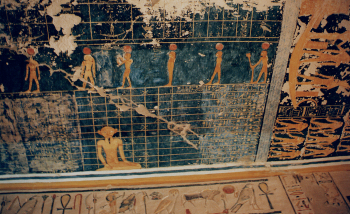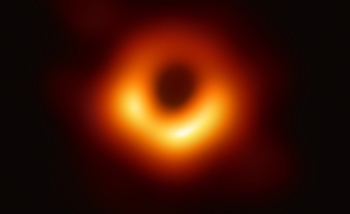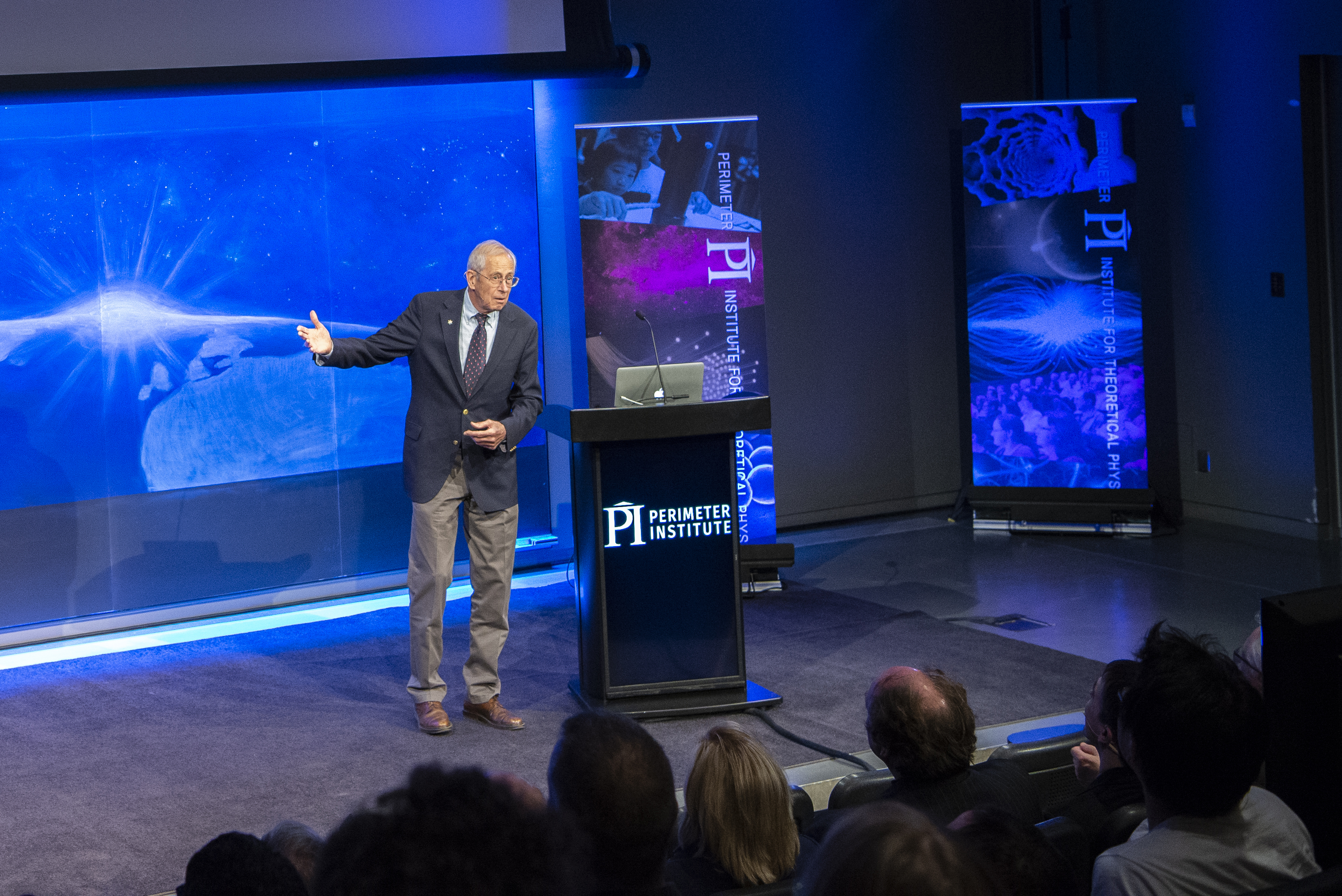Canadian cosmologist James Peebles has won half of this year’s Nobel Prize in Physics for his theoretical discoveries about the evolution of our universe.
The win makes him the third Canadian in five years to be honoured by the Nobel committee, joining Queen’s University Professor Emeritus and former Perimeter Institute Board member Art McDonald and University of Waterloo Professor Donna Strickland as Nobel laureates in physics. Since the prize was first awarded in 1901, six Canadians have won in total.
The other half of this year’s Nobel in Physics is shared by Michel Mayor, a physicist at the University of Geneva, and Didier Queloz, an astronomer at Geneva and at the Cavendish Laboratory in Cambridge, for the 1995 discovery of an exoplanet orbiting a sunlike star.
Peebles, who has a research chair and a postdoctoral fellowship named after him at Perimeter Institute, was recognized for “theoretical discoveries in physical cosmology.” Peebles’ groundbreaking insights into the radiation leftover from the big bang laid the foundation for the transformation of cosmology from speculation to science.
Using his theoretical tools and frameworks, Peebles was able to interpret the traces from the early universe and uncover information about the formation of light elements, the formation of galaxies and cosmic structure, characterizing the cosmic dark matter, and discovering early evidence for dark energy.
“James Peebles is a true scientific pioneer, in every sense of the word,” said Perimeter Director Robert Myers.
“Today, we have a remarkably precise picture of the physical universe and how it has and is evolving, but it is only because Jim’s careful work laying out the foundations for modern cosmology, at a time when much of the scientific community didn't consider it a serious field,” Myers told The Globe and Mail.
“As a young Canadian grad student at Princeton in the 1980s, I was inspired by Jim’s impressive lectures and good-natured manner, alongside of his remarkable research achievements.”
Peebles was born in Winnipeg, Manitoba, and earned an undergraduate degree at the University of Manitoba before obtaining his PhD at Princeton University. He is currently the Albert Einstein Professor Emeritus of Science at Princeton.
Peebles has also been a patron of the Perimeter Scholars International master’s program since its inception, and is the namesake of The Daniel Family P. James E. Peebles Chair in Theoretical Physics, held by cosmologist Kendrick Smith. In 2017, he spoke at the launch of Perimeter’s Centre for the Universe and lent his name to an associated postdoctoral fellowship, which is held by Mathew Madhavacheril.
The Nobel Prize committee noted that, together, the laureates had transformed our ideas about the cosmos.
“While James Peebles’ theoretical discoveries contributed to our understanding of how the universe evolved after the big bang, Michel Mayor and Didier Queloz explored our cosmic neighbourhoods on the hunt for unknown planets. Their discoveries have forever changed our conceptions of the world,” the organization stated when announcing the award on October 8.
While Peebles’ half of the prize deals with the very vast, Mayor and Queloz’s share zooms in on a much smaller scale, astronomically speaking. In October 1995, the pair announced the first discovery of an exoplanet (a planet outside our solar system) orbiting a solar-type star in the Milky Way galaxy. The planet, dubbed 51 Pegasi b, is a gas giant comparable to our own Jupiter.
Their discovery, made at the Haute-Provence Observatory in southern France with custom-made instruments, ushered in the field of exoplanet science. Since then, making use of dedicated telescopes and surveys, more than 4,000 exoplanets have been found in the Milky Way.
About PI
Perimeter Institute is the world’s largest research hub devoted to theoretical physics. The independent Institute was founded in 1999 to foster breakthroughs in the fundamental understanding of our universe, from the smallest particles to the entire cosmos. Research at Perimeter is motivated by the understanding that fundamental science advances human knowledge and catalyzes innovation, and that today’s theoretical physics is tomorrow’s technology. Located in the Region of Waterloo, the not-for-profit Institute is a unique public-private endeavour, including the Governments of Ontario and Canada, that enables cutting-edge research, trains the next generation of scientific pioneers, and shares the power of physics through award-winning educational outreach and public engagement.
You might be interested in



Spiralling light from M87’s supermassive black hole reveals strong magnetic fields
November 8, 2023

